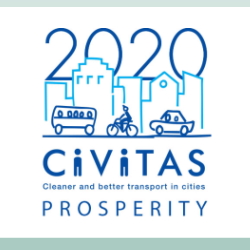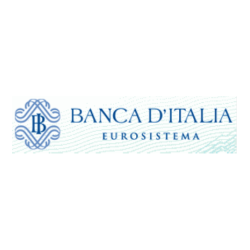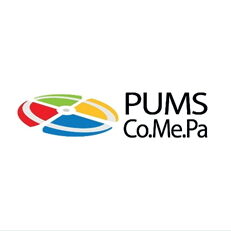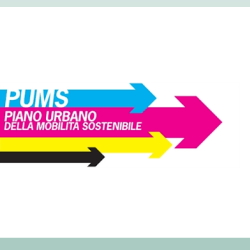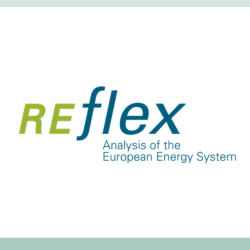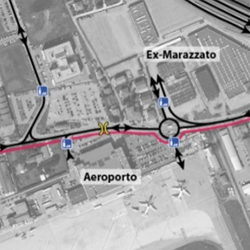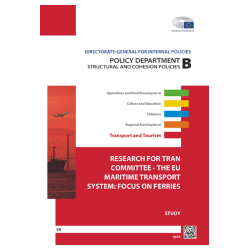- All
- African projects
- assessment
- assessment selected projects
- Assessment selected projects 2
- Assessment selected projects 3
- Assessment selected projects 4
- ASTRA
- Cost Benefit Analysis
- Electric mobility and ITS
- MOMOS
- planning
- planning selected projects
- planning selected projects 2
- planning selected projects 3
- planning selected projects 4
- planning selected projects 5
- projects
- Railways projects
- research
- research selected projects
- research selected projects 2
- research selected projects 3
- studies
- studies selected projects 1
- studies selected projects 2
- studies selected projects 3
- studies selected projects 4
- studies selected projects 5
- TRTingegneria
- TRUST
- urban mobility
- CIVITAS Prosperity – Prosperity through innovation and promotion of Sustainable Urban Mobility Plans The project, led by FGM-AMOR in a consortium of 26 partners, is funded by the EC H2020 research program and aims at innovating and promoting SUMPs in 12 European countries: Slovenia, Lithuania, Croatia, Cyprus, Czech Republic, Romania, Hungary, Bulgaria, Poland, Romania, Germany, Portugal. The PROSPERITY projects is developed along the following key activities: National Programmes – Strong involvement of national ministries or agencies to develop or improve national level programmes to encourage their cities to develop SUMPs; Living Labs – A support for partner cities to be living labs demonstrating to other cities how SUMP can be developed and implemented; Tools and Guidelines – Developments and improvements of tools and guidelines to provide advice and support to cities in their national context; Capacity Building – Innovative capacity building and training tailored to the needs and context of each country. TRT contribution to the project is mainly focused on training and capacity building activities related to tools needed to develop SUMPs, including the Urban Transport Roadmaps one. For more information: Innovation brief on city logistics solutions (Stefano Borgato, Giuseppe Galli, Simone Bosetti) Interview to Simone Bosetti, SUMP Ambassador: the transport planner and chair of the EU SUMP platform coordinating group, talks about recent experiences of the SUMP planning practice in Italian cities
- Technical assistance to the CAPTAIN project – Adriatic IPA CBC 2007-2013 TRT has been selected by RAM (Rete Autostrade Mediterranee) an in house company of the Italian ‘Ministero delle Infrastrutture e Trasporti’ to provide technical assistance to the CAPTAIN project of the Adriatic IPA 2007-2013 programme. The project developed in 2016 involved 10 partners (institutions, research centers and port authorities). CAPTAIN project aims to collect and share the results Adriatic MoS, EA-Sea-Way, Adrimob projects, already financed by the IPA Adriatic Programme 2007-2013, with particular attention to the resolution of bottlenecks and the missing links for good transport in the partner countries (Italy, Croatia, Montenegro, Greece, Albania, Bosnia and Herzegovina, Slovenia). The technical assistance activities concerned: the follow up of the feasibility study of the Adriatic MoS project; the coordination of EA Sea-Way and Adrimob feasibility studies; the dissemination of good practices and technical coordination activities during meetings and workshops.
- Statistical sample survey on the international freight transport 2016-2019 TRT has been commissioned by the Banca d’Italia (Italian Central Bank) to carry out a four-year survey on the international freight transport, in order to: identify the unit costs of different transport modes for imports and exports; identify the components of ancillary costs; show in a matrix the abroad goods exchange; define the market share held by Italian actors in the maritime, air and rail transport sectors; estimate the turnover made by Italian ship-owners abroad. This project follows similar surveys managed by TRT since 1998, whose results are used by Banca d’Italia to estimate the Balance of Payments for the corresponding years.
- Sustainable Urban Mobility Plan – Metropolitan area of Padua’s (Comepa) Following a public tender, TRT, in cooperation with Technital, Atraki and Avanzi, has been commissioned by the Municipality of Padua for the drafting of the new SUMP for Metropolitan area of Padua (CoMePa). The Plan has been approved by the City Council in January 2020. The first phase of activities ended in October 2016 with the completion of the first set of activities: description of the current status of urban mobility, field surveys, organization of participatory events to gather stakeholders positions and construction of the multimodal transport simulation model. The resignation of the City Council in November 2016, led to the suspension of activities. In September 2017, the dialogue within the CoMePa resumed with the aim of proceeding with the drafting of a SUMP, being Padua one of the 18 Municipalities that – on a voluntary basis – started the process of transport planning at metropolitan scale. In 2018 the SUMP was completed with the Plan Proposal presented to the technical and political bodies of the Municipalities of the Padua metropolitan area. The Plan Proposal was discussed in different meetings with technical and political bodies of CoMePa . The third phase was completed with the quantitative assessments of the Plan interventions and the drafting of the final document of the PUMS to be adopted and approved by the Municipalities . The participatory process adopted for the SUMP development led to the inclusion of different measures to encourage the transition towards low carbon mobility through: modal shift actions; the introduction of a vehicle access control area (Low Emission Zone -LEZ) for Padua; the promotion of penetration of electric traction and low environmental impact vehicles in the central area. For more information Documents available on padovanet.it (only available in italian) “Sustainable Urban Mobility Plan (SUMP) of Padova and metropolitan area”. Case study published on Eltis Platform
- Drafting of the Sustainable Urban Mobility Plan of the city of Parma (Italy) Following a public tender, TRT has been selected by the City of Parma for the drafting of the new SUMP. The first step has led to the definition of the strategic guidelines of the Plan while, during 2016, the SUMP has been drafted in a pre-approval form. The SUMP process has been developed through the following activities: reconstruction of the knowledge in the area of transport and mobility; analysis of its strengths and weaknesses; identification of targets that have been selected by policy makers, stakeholders and citizens (that have contributed through the on-line survey conducted in support to the SUMP); drafting of the SUMP guidelines that have been approved by the City Council (Sep. 2015); definition of the alternative SUMP scenarios (successively shared among policy makers, stakeholders and citizen representatives); technical, economic, environmental and social evaluation of the SUMP scenarios; identification of the best SUMP scenario. The Plan has been officially approved by the City Council on 21st March 2017 and has undergone a SEA (Strategic environmental assessment). For more information Documents available on comune.parma.it (only available in italian) “Parma’s SUMP: the first in Italy combined with a Strategic Environmental Assessment”. Case study published on Eltis Platform TRT was commissioned in 2019 to coordinate the implementation and monitoring of Parma’s SUMP and was also responsible of the drafting of the General Urban Traffic Plan of the city of Parma.
- REFLEX, a project funded by the Horizon 2020 EU research program, focused on the analysis of the European Energy System under the Aspects of Flexibility and Technological Progress The core objective of the REFLEX project is to analyse and evaluate the development towards a low-carbon energy system with a focus on flexibility technologies in the EU to support a better system integration of Renewable Energy Sources. The project, lead by University of Dresden (Germany), identifies and assesses the most relevant low-carbon technologies and flexibility options in the mobility, heat and electricity sectors for a sustainable and cost-effective transformation of the European energy system. The analysis is based on a modelling system that considers the full extent to which current and future energy technologies and policies interfere and how they affect the environment and society while considering technological learning of low-carbon and flexibility technologies. In the REFLEX project TRT provides expertise in the analysis of the impact of flexibility and technology options on mobility and transport. Both diffusion of alternative technologies in the vehicle fleet and energy and transport policy measures have been considered to analyse the decarbonisation pathway in the transport sector. To this end, the ASTRA system dynamic strategic model simulates the transport system in linkage with the economy, the environment and the energy systems. It is therefore capable to represent long term impacts of transport policies not only on mobility but also on wider aspects such as economic growth or greenhouse gas emissions. In comparison to all other energy sectors, the transport sector increased its GHG emissions since 1990. These emissions need to be reduced by 2050 by at least 60% relative to 1990. Considering the continuous growth of passenger and freight transport demand, strong and timely responses are required at the policy level. Within the REFLEX project, a reference scenario (Mod-RES) and two ambitious policy scenarios (High-RES) are simulated with the ASTRA model (under consideration of global learning for batteries through coupling with the TE3 model) and flexibility potential provided for the electricity sector. Results indicate that a bundle of complementary measures (boosting transport system energy efficiency, supporting the electrification of road transport and promoting alternative fuels )is required to support and accelerate the transition. For more information Brochure Policy brief on Transport trends in the context of future energy scenarios Paper on Investigating the impact of e-bikes on modal share and greenhouse emissions with the ASTRA model. Detailed techno-economic assessment of low-carbon technologies focusing on flexibility options and applying bottom-up sectoral models and demand projection models of the heat, electricity and transport sector, download deliverable. Application of social environmental life cycle assessment (eLCA and sLCA) to analyse and compare environmental impacts, social risks and external costs due to life cycle-based environmental impacts related to the European energy systems for the three envisaged REFLEX scenarios, download deliverable. Document providing a short but concise overview of the main findings for the different sectors and a bundle of policy recommendations derived thereof. The book “The Future European Energy […]
- Alessandria – Sustainable Urban Mobility Plan and updating of the Urban Traffic Plan The Municipality of Alessandria awarded TRT to draft the Sustainable Urban Mobility Plan (SUMP) and to update the Urban Traffic Plan (UTP). The SUMP-UTP process was developed along four steps: the background analysis of the mobility-related sector and its environmental, social and economic impacts in Alessandria, including the development of extensive surveys (traffic, parking supply and demand, public transport passengers counts); the identification of the strategies for the construction of the SUMP/UTP scenarios, as a result of the background analysis as well as the objectives and the priorities raised by the local Administration; the design of different scenarios: reference solution and SUMP scenario (short period – 2 years and long period – 10 years); the evaluation of the alternative scenarios through the implementation of an AIMSUN transport model for the urban area. In addition, specific detailed documents such as the Parking Plan and the Urban Public Transport Plan have been developed. The SUMP-UTP was adopted with resolution no. 168/16110-220 of the City Administration on 9/06/2017. Following the establishment of a new municipal administration, in 2019 TRT subsequently updated the plan and supported the administrative process of the new version until the final approval. After the adoption in September 2019, the updated SUMP-UTP document in its final version was approved by the City Council on 10/06/2020 with resolution no. 31
- Traffic impact study of new settlements in the area of the Treviso airport (Italy) The study analyzes and offers possible solutions to the mobility impacts generated by the future urban developments of the Antonio Canova airport in Treviso, as well as the nearby commercial area Ex-Marazzato and the multipurpose development area called AirCenter. The proposed solutions have been tested by using a dynamic micro-simulation tool. The application of the micro-simulation techniques allows an in depth analysis of the impact of traffic flows generated by new urban developments on the road network.
- The EU Maritime Transport System: Focus on Ferries TRT has drafted an initial Briefing that provides the Members of the Committee on Transport and Tourism of the European Parliament with a clear overview of the EU Maritime Transport System, with a special focus on passenger ferries and the role they play in contributing to the multimodality of EU transport. The Initial Briefing discusses new opportunities in the future development of the ferry industry in the EU (technical innovation and tourist promotion). The specificities of the ferry industry are addressed considering history, size, growth, employment, performance of the industry, impact on environment, safety records, characteristics of the operations at different scale (urban, regional and national), possibility of integrated ticketing and competition with infrastructures (fixed links) and services (low-cost carriers).

